2024 Yeti SB165 T3 X0 Transmission Bike
| Where To Buy | |||
|---|---|---|---|
Free Delivery on purchases over £20.
|
Free Delivery on purchases over £20.
£9,499.00
|
||
Free shipping on orders over $50 (continental U.S. only).
International shipping available. Some exclusions apply. |
Free shipping on orders over $50 (continental U.S. only).
International shipping available. Some exclusions apply. $9,200.00
|
||
Free shipping on orders over $50 (continental U.S. only).
International shipping available. Some exclusions apply. |
|||

The Yeti SB Lineup has morphed into a new generation of bikes over the last two years, with some models switching over to 29-inch wheels and others popping up in 27.5-inch variants. There are revisions to frame construction, suspension kinematics, and size-specific geometry across all models. With the latest iteration of the SB165 being teased over the last couple of months, it was no surprise that it has undergone the same treatment. Created initially as the dual-27.5-inch option for the wildly successful SB150 platform, the longest-travel SB model has become more synonymous with the freeride scene than the enduro crowd, thanks to the more-fun-than-fast intentions of the bike. While the new model sees the addition of a 29-inch front wheel, Yeti has kept the playful nature alive and prioritized fun without straying too far from their race-driven ethos.
Highlights
- 63.5-degree head tube angle
- 76.9-degree seat tube angle
- 165mm rear wheel travel // 170mm fork travel
- 27.5-inch // 29-inch mixed wheels
- Threaded bottom bracket
- High-clearance downtube
- Dual-density downtube protection
- Universal Derailleur Hanger (UDH)
- Secure, fully enclosed internal cable management Compatible with long dropper posts
- 100% standard sealed Enduro Max bearings Floating collet axle pivot design Compact-wishbone shock extender
- Boost spacing
- Sizes: SM-XL
- MSRP: $6,300 - $9,200 ($9,200 as tested) $4,800 frame only
| Strengths | Weaknesses |
|
|
What's New?


The most obvious change to the SB165 is that it now rolls on mixed wheels and looks like the rest of the Yeti lineup. Following this refined form, the new frame construction moves pivot bearings from the carbon frame interface into the links, and those links are now sandwiched between the frame rather than wrapped around it. Having the bearings within the links rather than the frame makes for easier maintenance, increases stiffness, and improves durability. On the topic of durability, the bike now uses the Switch Inifinty V2 mechanism, which is less susceptible to alignment issues through the use of a floating collet axle system.
The updated Switch Infinity system also brings subtle changes to kinematics while still being optimized for the use of a coil shock, and the SB165 still has the most progressive rate in the Yeti lineup at 22% overall. While this may not seem like a ton of support, the leverage curve starts relatively low and falls off exponentially in the last third of travel to build bottom out support when it is most needed. The first third of travel creates a high anti-squat value for pedaling performance, while the second third drops anti-squat considerably for mid-stroke sensitivity, and the final third drops leverage for increased bottom-out support. Changes to geometry come in the form of size-specific chainstay lengths that are still on the short side of things and a taller stack height to help create a consistent feeling across all sizes.

SB165 Lineup
The SB165 is offered in two different levels of carbon frame like the rest of the Yeti lineup with the TURQ series being the preimum trim and the C series as a more cost effective option with all build kits featuring a FOX Factory DHX2 shock, SRAM drivetrains, and DT Swiss wheels. The C series bikes are offered in the C2 ($6,300) and C3 GX Transmission ($7,300) level build kits which are spec'd with both cable-actuated or wireless SRAM GX drivetrains, FOX Performance 38 fork with Grip damper, and the option to upgrade to a FOX Factory level fork for an additional $600.



TURQ series bikes come in T3 X0 Transmission ($9,200 as tested) and T2 X01 Eagle ($7,900) level build kit options with the same ideology as the C series. Both build kits feature a FOX Factory 38 fork with Grip2 damper, cable-actuated or wireless SRAM drivetrain. A DT Swiss EXC 1501 carbon wheel upgrade is an option for an additional $1,000.





Geometry
If it isn't broken, don't fix it. As mentioned, the changes to geometry come primarily in the form of a taller stack height and size-specific chain stays, and that is about the extent of what has changed. Yeti seems to have been perfectly happy with where the SB165 was and as a result, sought refinement instead of re-imagination. While many things have likely needed to be reworked to account for a larger front wheel, most geometry angles and dimensions are strikingly similar to the outgoing model on paper.

Setup
Setting up any bike with a coil shock generally takes a few tries to get right, and the correct spring weight can be a bit of a guessing game. The SB165 was no exception and took a few laps to get things working correctly. After literally bouncing back and forth between the provided 550lb, 600lb, and 650lb springs in the parking lot, I settled on the 650. After one lap of spiking through successive hits and unsettling in turns, I swapped down to the 600lb spring, then things felt right at home. Thankfully the setup guide on Yeti's website is one of the most accurate available and can save the hassle of swapping back and forth.
In my experience with every other SB model bike, I found the stock handlebar height to be a bit too low for my liking and have needed a taller bar to achieve a comfortable posture. With the SB165, the stack height sits 10mm taller than an SB160 and is paired with a brand-new 35mm rise house-branded bar from Yeti, which helped make body position on the bike comfortable straight away. This allowed room to go higher or lower on the provided steer tube length. Setting up the FOX Factory 38 fork was straightforward and familiar, allowing me to stick with my default settings without any additional puzzling.

On The Trail
Testing the SB165 took place in a few different locations across Northern California, which involved primarily fire road or singletrack climbs and a few shuttle days mixed in. The descents consisted of steep terrain with frequent changes in direction, high momentum G-outs, no shortage of whooped-out braking bumps, and frequent opportunities for air time. While the SB165 is synonymous with freeride and park riding, the overall feeling on trail revealed a slightly more balanced ride experience than anticipated.

Pedaling Performance
Uphill performance is clearly not the target of the bike, but it was surprisingly good for what the numbers would suggest. The 76.9-degree seat tube angle and 653mm effective top tube length created a fairly central pedaling position, keeping things easy to reach when spinning uphill, resulting in direct power transfer through the bike. Seated pedaling didn't require leaning forward to keep the front wheel on the ground, which remained consistent even up steep pitches. The bike could be easily lifted to navigate small ledges. On the topic of navigating ledges, the low bottom bracket height became rather apparent in any sort of technical climbing, as pedal strikes were fairly common during testing. Thankfully, the supple suspension and anti-squat early in the travel worked great together, taking the edge off of small bumps, eliminating pedal bob, and controlling velocity through larger dips without absorbing rider input, which was not expected from such a gravity-focused bike.

DH/Technical Performance/Fun Factor
The SB165 felt fairly neutral on trail; body weight was central, but weight distribution at the wheels was slightly rearward. Having the rear wheel directly beneath created a ton of rear wheel traction when combined with supple rear suspension and a low bottom bracket. The short chainstays helped directly translate my input through the rear wheel at all times but did result in a light feeling at the front wheel. These attributes were beneficial when it came to popping off of side hits, catching backsides, timing manuals between undulations, or tightening up berms and contributed heavily to the fun factor of the bike. While the bike was great across high-speed chatter as well, these qualities became less favorable in terrain where applying pressure to the front wheel became less natural, such as off-camber turns, choppy steep sections, and when input velocities from the trail increased. While the bike favors high-speed scenarios more often than not, the light front wheel became more apparent in these situations. The less settled front wheel seemed relative to how short the rear of the bike is in comparison to the front and required a slight shift forward to counteract. While this is likely less an issue on smaller sizes, the bike still felt like an absolute weapon pointed downhill. Without a doubt, high-speed descending, ripping turns, and blasting big jumps are the strong suits of the bike, but the small bump performance proved to be equally as impressive.

Rear Suspension Performance
The rear suspension had a supple feeling that tracked the ground incredibly well across chatter and built a ton of support late in the travel to help soften the blow when things didn't go as planned. Because the initial stroke is so supple, the bike did get through the first part of travel a little too easily in some instances, particularly when preloading into more abrupt lips where the input velocity on the shock was very high. This resulted in the bike pitching the bike forward in some instances but could likely be counteracted with additional high-speed compression damping to help slow the velocities earlier in the travel. Heavier impacts from drops and harsh landings were met with ample bottom-out support, where these higher velocities dissipated more easily. Still, the ability to track over rough terrain was a standout characteristic of the rear suspension, and the general feeling from the rear wheel created a glued-to-the-ground sensation.

What's The Bottom Line?
While it's more commonly seen in freeride applications and may not be associated with a race bike, the SB165 is still a Yeti and carries many of the attributes of their race-focused bikes with it. It is certainly geared towards more playful riding, but it still pedals great, offers excellent bump absorption, and will be easy to get along with as a daily driver for those who prefer a mixed-wheel setup. When it comes to the size XL in particular, the geometry feels slightly imbalanced front to rear, and the sensation of loading the rear more heavily than the front was fairly common for me. Still, the relaxed feeling on the bike would certainly suit park riding, where the terrain is less varied and more predictable, and I believe the use of an air shock could help with overloading the rear suspension. For my preferences and riding style, I would opt for the full 29-inch wheeled SB160 for a more central position on the bike and consistency across varied terrain. For those who land lower on the size chart, the SB165 is likely to offer the same consistent handling characteristics but with more maneuverability.
Visit yeticycles.com for more details.
View key specs, compare bikes, and rate the Yeti SB165 in the Vital MTB Product Guide.
About The Tester
Jonathon Simonetti - Age: 30 // Years Riding MTB: 21 // Height: 6’4” (1.93m) // Weight: 230-pounds (97.5kg)
Jonny started mountain biking in 2003 after a trip to Northstar showed him how much more could be ridden on 26” wheels than on a BMX bike. He began racing downhill in 2004 and raced for 12 years until ultimately deciding having fun on a bike was more important than race results. After working as a mechanic in the industry for a few years and developing a deeper understanding of bikes inside and out, he has an aptitude for pairing his riding ability with the analysis of bikes and breaking down what makes them work well. He spends most of his time between trail rides and skatepark sessions, with occasional days on the downhill bike.
Specifications
Option: DT Swiss EXC 1501 Carbon
Rear: Maxxis Minion DHR II, 3C MaxxTerra compound, EXO+ casing, 27.5" x 2.4"
Drop: 150mm (SM), 175mm (MD), 200mm (LG/XL)
• Mixed ("Mullet") wheels: 29" front, 27.5" rear
• Internally tunneled cable routing
• SRAM UDH (Universal Derailleur Hanger)
• Compatible with dual-crown forks
• Frame weight: 8.31 lbs (3769 g)
Yeti Updates the SB165 (press release)
Yeti website
| Where To Buy | |||
|---|---|---|---|
Free Delivery on purchases over £20.
|
Free Delivery on purchases over £20.
£9,499.00
|
||
Free shipping on orders over $50 (continental U.S. only).
International shipping available. Some exclusions apply. |
Free shipping on orders over $50 (continental U.S. only).
International shipping available. Some exclusions apply. $9,200.00
|
||
Free shipping on orders over $50 (continental U.S. only).
International shipping available. Some exclusions apply. |
|||


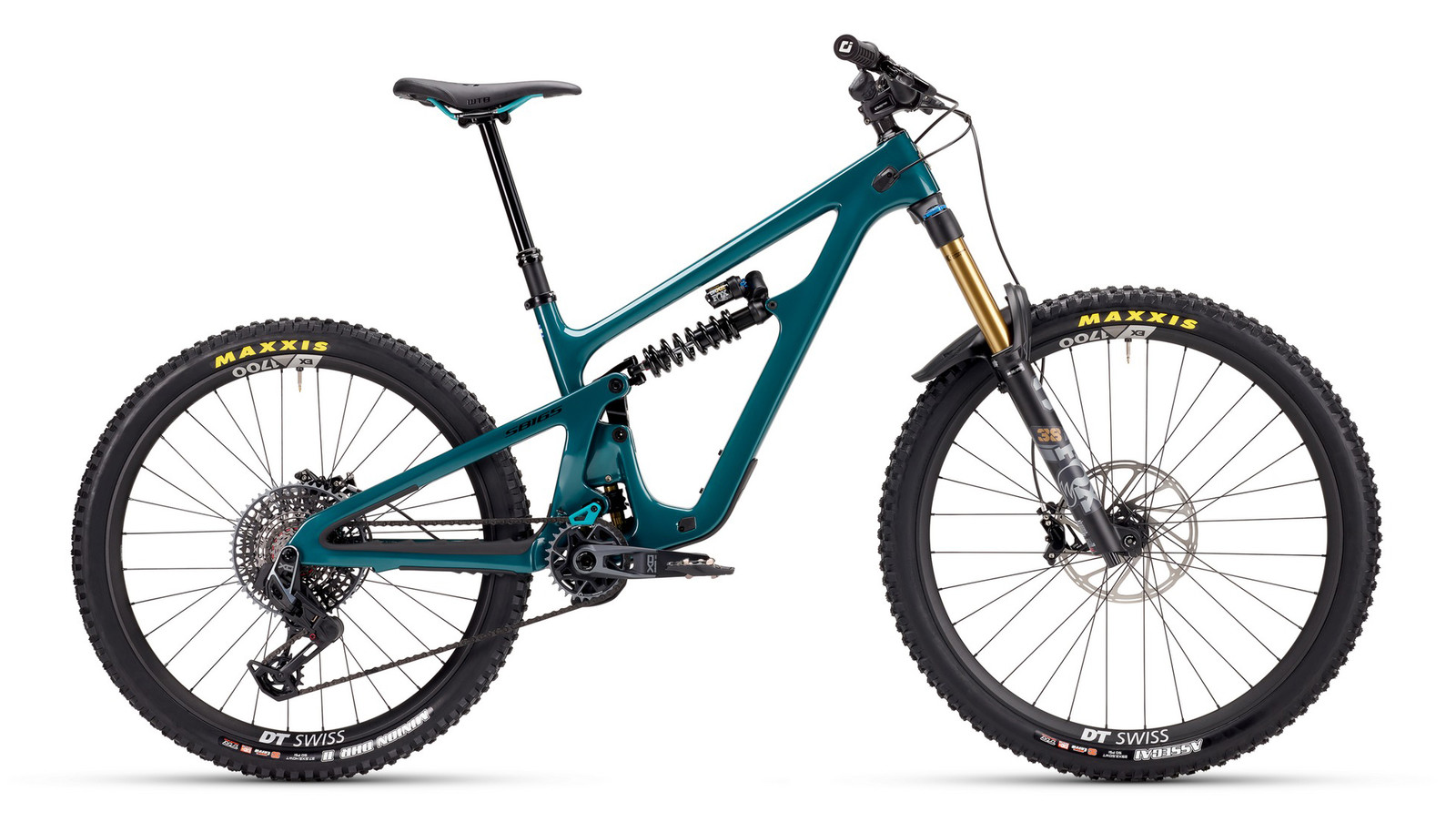






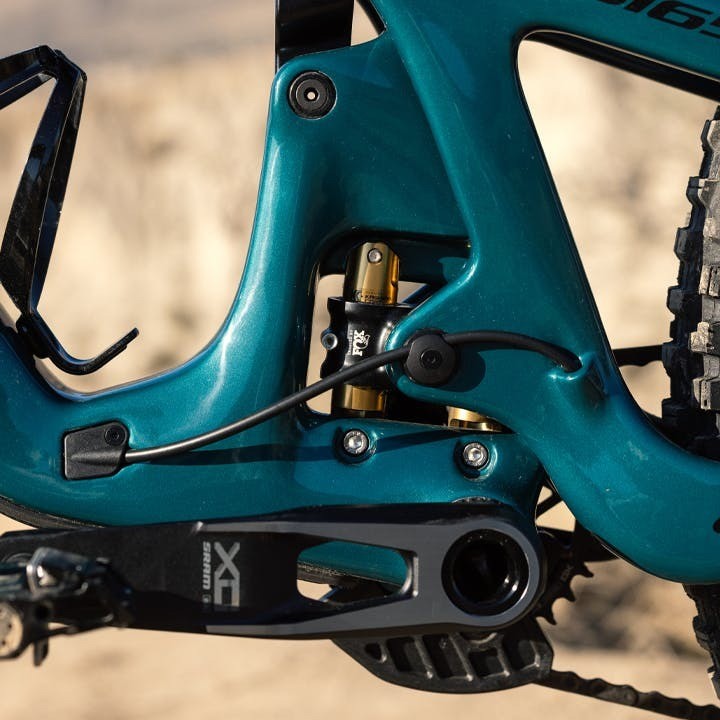
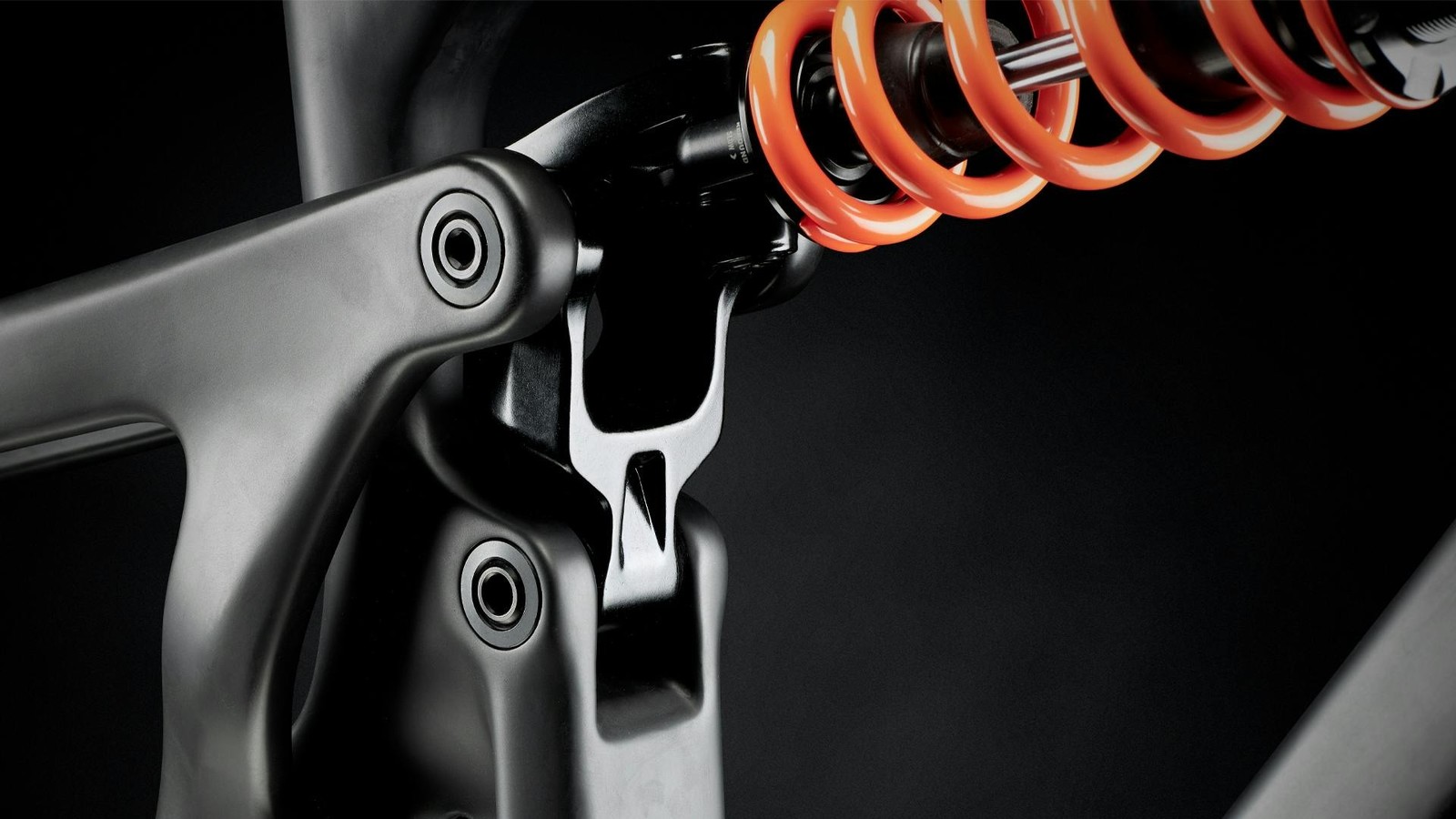
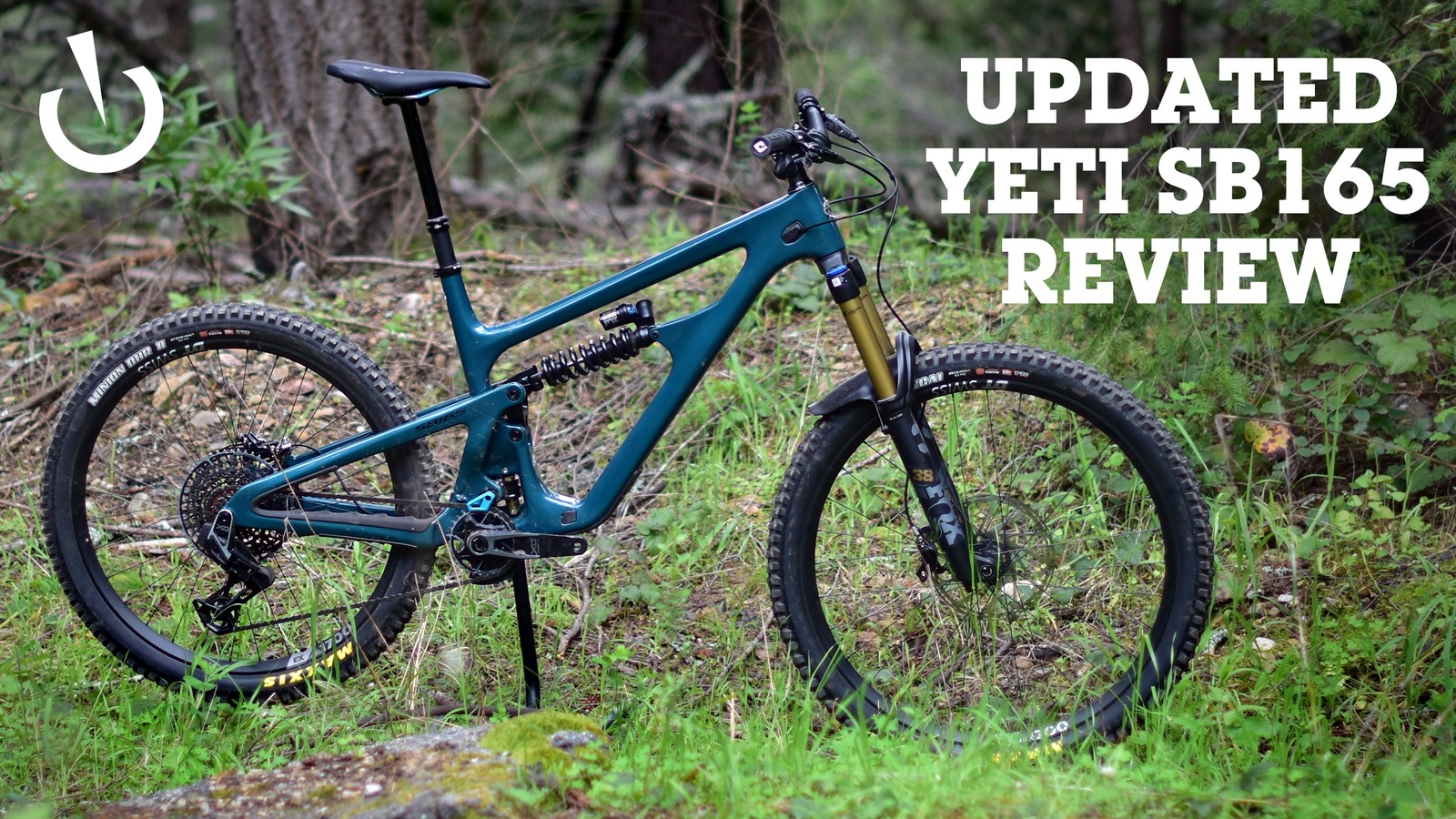

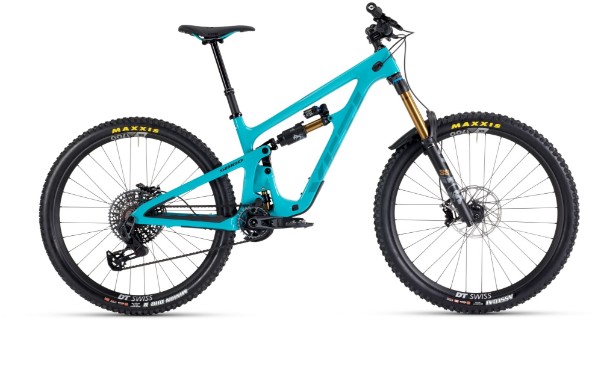




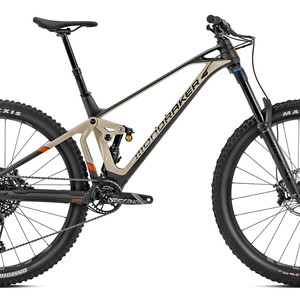
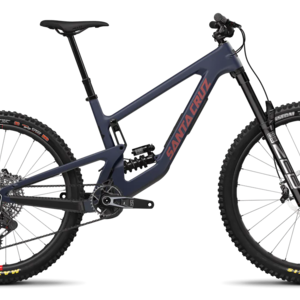
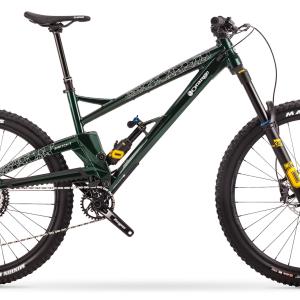
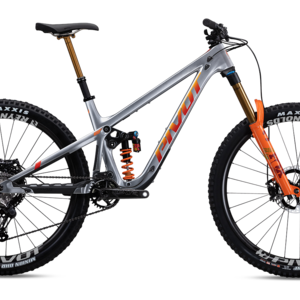
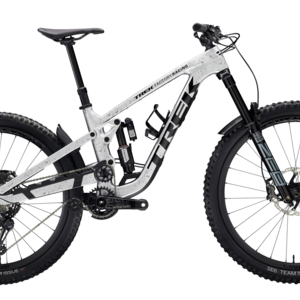
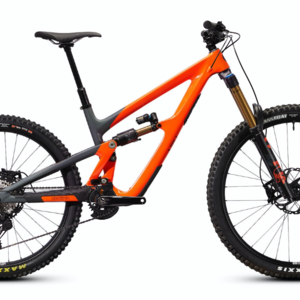








8 comments
Post a reply to: REVIEW - The Updated 2024 Yeti SB165